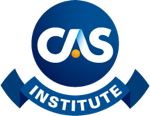July 28, 2016
 As first published in the July/August issue of the Actuarial Review, The CAS Institute has announced the requirements to earn its inaugural credential, which is a certification for those working in data science and predictive analytics.
As first published in the July/August issue of the Actuarial Review, The CAS Institute has announced the requirements to earn its inaugural credential, which is a certification for those working in data science and predictive analytics.
The CAS Institute is a newly-formed subsidiary of the Casualty Actuarial Society that will provide specialty credentialing and professional education to quantitative specialists in selected areas.
Last November, The CAS Institute announced that the first credentials to be granted will focus on data science and predictive analytics, with other specialty areas to follow.
The organization has now released the general requirements necessary to attain this first credential. Candidates will be required to complete four components, which will demonstrate their knowledge and competencies in data science and predictive analytics. (See Chart 1.)
The requirements were established by a panel of data science and predictive analytics subject matter experts charged with developing the specific program characteristics for the credential. The panel’s continued work will include outlining learning objectives for each topic, creating the curriculum, directing development of educational materials, setting the competency levels, and overseeing examinations and scoring.
The panel will also define the experienced practitioner program, which will allow for the granting of credentials to those working in data science and predictive analytics who are recognized as having the requisite knowledge, practical experience, and evidence of achievement as accomplished professionals in the field.
The CAS Institute’s programs are designed for professionals seeking recognition through a credential in specialized quantitative practice areas and looking to distinguish themselves from other professionals through evidence of expert, specialized knowledge. It is expected that professionals holding the credentials can leverage this recognition to secure additional job duties, attract premium compensation and advance their careers.
Additional details about the inaugural credential, including detailed learning objectives for each topic, will be released later in 2016.


